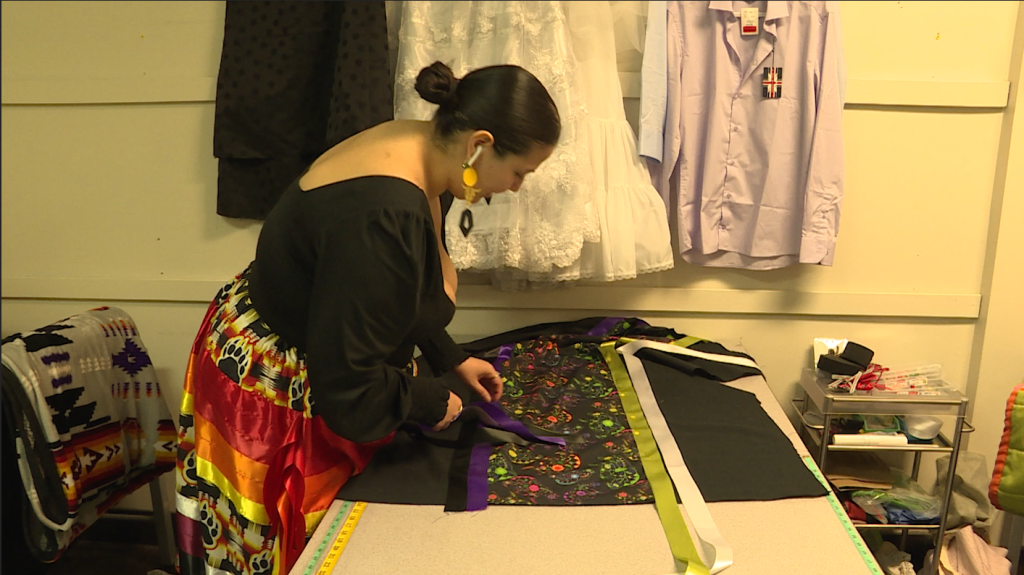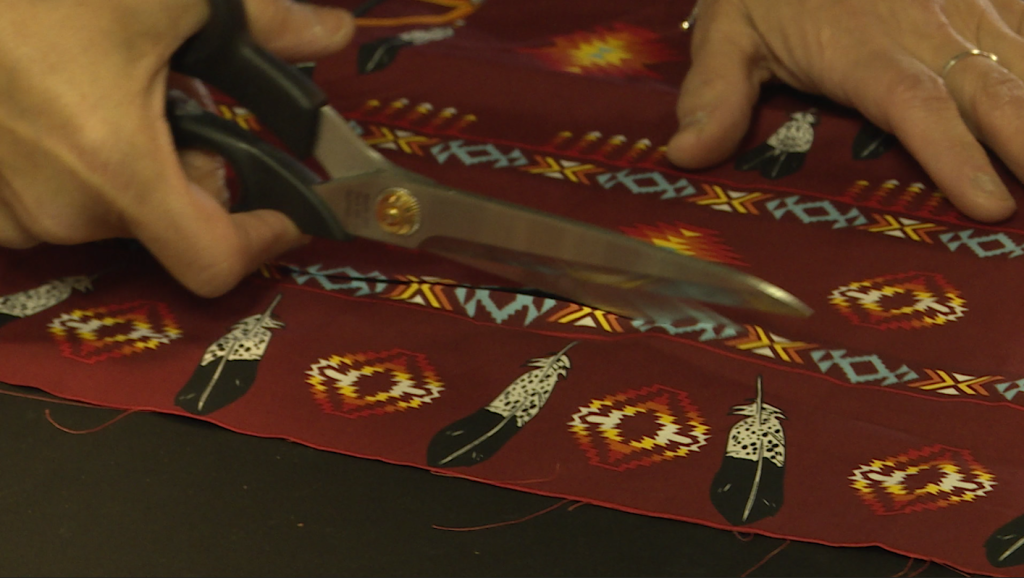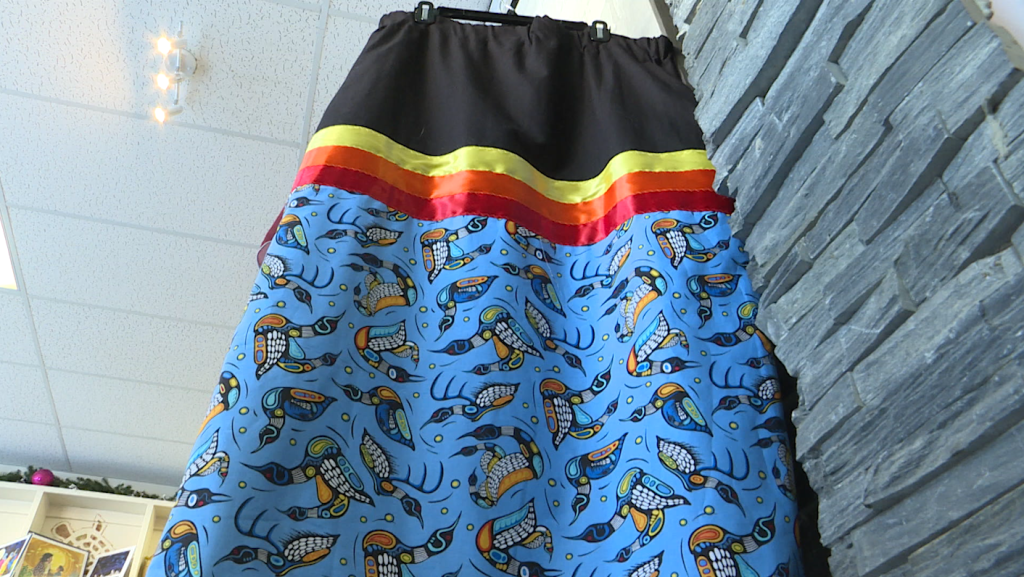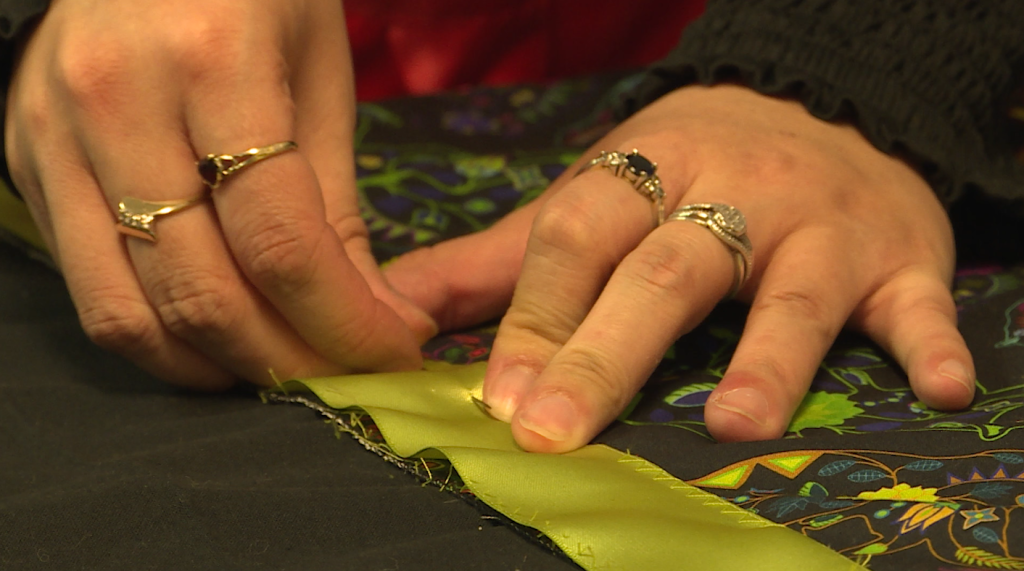Canada recognizes first National Ribbon Skirt Day
Posted January 4, 2023 4:26 pm.
Last Updated January 4, 2023 6:29 pm.
Colourful ribbon skirts are traditionally worn by First Nations girls, women, Two Spirit, and gender-diverse people.
On Jan. 4, Canada honoured their importance with a national day of recognition.
National Ribbon Skirt Day began after Isabella Kulak, of Cote First Nation, was shamed by a staff member for wearing her ribbon skirt on formal wear day at her elementary school in Saskatchewan.
She wore the colourful garment, donned by Indigenous women at cultural events, as part of a formal day. But her family said at the time a staff member told her the outfit wasn’t considered formal enough.
The school division apologized, but her story sparked an online movement of Indigenous women sharing photos of themselves wearing ribbon skirts as an expression of pride in their identity.
Kulak and her family say today, they want people to wear something that shows they are proud of who they are, whether or not that is a ribbon skirt.
Aislyn Carlson of Barren Lands First Nation is a seamstress who designs and makes ribbon skirts in Winnipeg. Carlson says it’s unfortunate Kulak was not embraced positively by everyone when she arrived at her school wearing clothing representative of her heritage and culture.

National Ribbon Skirt Day. (Photo Credit: Mark Neufeld, CityNews)
Carlson wishes it had never happened but says it is good the negative experience has become something positive for the country.
“It definitely sucks that it had to happen that way for sure, that poor little girl,” said Carlson. “I think it’s long overdue for sure. It’s actually really great to see it finally happening no matter how long it took, and I think it’s a really great way to represent our people.”
A statement by the prime minister says Canada will honour the day every Jan. 4 as “an opportunity for us all to learn more about and to celebrate Indigenous cultures, traditions, histories, and contributions to this diverse country.”



“Isabella’s story shone a light on the enduring injustices, racism, and discrimination faced by First Nations, Inuit, and Métis in Canada every day, and on the importance of the role we all have to play in making sure that what happened never happens again to anyone in Canada,” said Trudeau.
April Tawipsim, the owner of Turtle Woman Indigenous Wear, says creating and sharing ribbon skirts was part of her journey in reclaiming her identity as a Cree woman.
Tawipsim began sewing ribbon skirts during the pandemic and says each one is unique and often tells a story about the person wearing it and the community they come from.
“I think it’s awesome, and we need to see more young people, more of our people wearing our traditional clothing,” said Tawipsim. “Like for the Anishinaabe nation, the Ojibwe, they have a clan system, right? So a lot of them will come in wanting to show their clan system in their dress, their shirts, their skirts.”
-With files from the Canadian Press








